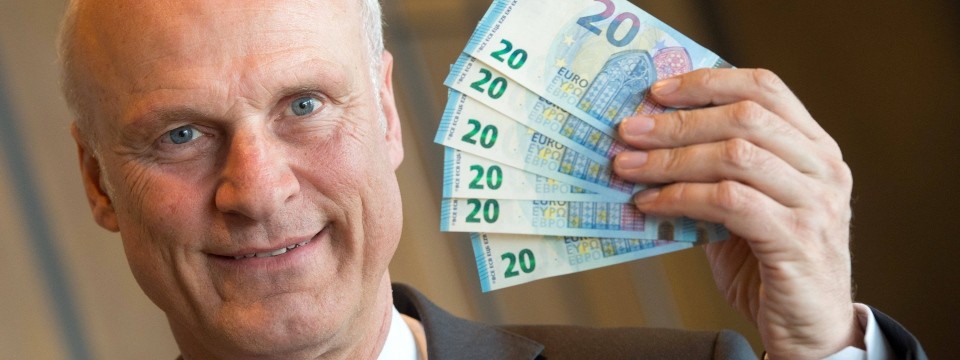
Online German news site, €uro am Sonntag, interviewed Bundesbank board member Carl-Ludwig Thiele who revealed the European Union has no plans to issue a state-backed cryptocurrency. He also goes on to agree with the idea that bitcoin was a direct reaction to the 2008 financial crisis, and how “our currency, the euro, is essentially based on trust.”
Also read: Rule Change Could Allow Listing Bitcoin Futures as Exchange Traded Funds

Euro will Not Get State-Backed Crypto Soon
“Digital central bank money analogous to cash is currently not in sight,” answered Mr. Thiele to the question of a government cryptocurrency. “However, there is a debate about the benefits of digital central bank money in a closed system for the settlement of transactions,” he clarified.
Deutsche Bundesbank (Buba) is Germany’s central bank and arguably the most powerful in the European Union system. It’s relatively independent, and its system of banking is the model on which the European Central Bank (ECB) is based. It is often looked to for fiscal discipline within the region.
Buba’s Mr. Thiele denies urging investors to avoid bitcoin, insisting the bank “makes no investment recommendations – but shows risks. Bitcoin shows high value fluctuations,” he is quoted as saying, “not only in comparison to the euro. It is therefore not suitable for storing value.”
Mr. Thiele, 64, has been a Buba board member for seven years, and specializes in currency and payment systems. Previously he was a representative in the Bundestag for two decades. He left his seat in to work for the central bank.
“The expensive and inefficient transmission system of the Bitcoin Blockchain,” he emphasizes, “is against the suitability as a means of payment.”

Our Currency, the euro, is Essentially Based on Trust
Asked about the connection between bitcoin and the 2008 financial crisis, Mr. Thiele revealed, “Part of the motivation of virtual currencies probably arises from the critical reflection of the financial system at that time,” he acknowledged. “It remains an ongoing task for central banks and for fiscal policy as a whole to consolidate confidence in our money and our financial system. Because our currency, the euro, is essentially based on trust. Trust is easy to gamble and hard to win.”
His comments come after another German financial expert, Christoph Schmidt, cautioned bitcoiners’ losses during a dramatic price downturn could “affect others because they were financed with loans,” he explained to Rheinische Post, “then that would increase the risk of distortions on financial markets.”
Bild quoted German banking regulator Felix Hufeld suggesting the regional financial community was still gathering information on bitcoin, as they “are all working on understanding the topic and building our know-how,” he said.
Mr. Thiele’s previously published public remarks on bitcoin were given Fall of this year, as he delivered a keynote. After a wide-ranging and detailed discussion of cryptocurrencies, he concluded “healthy scepticism, coupled with curiosity and critical analysis, is warranted when it comes to both [bitcoin] and central bank-issued digital currency. Central bank-issued digital currency, I believe, is currently an unrealistic prospect.”
What do you think about there not being an EU state-backed crypto? Let us know in the comments below.
Images via Pixabay, EU.
Bitcoin.com is ramping up our tools section with a variety of useful Bitcoin-related applications.
